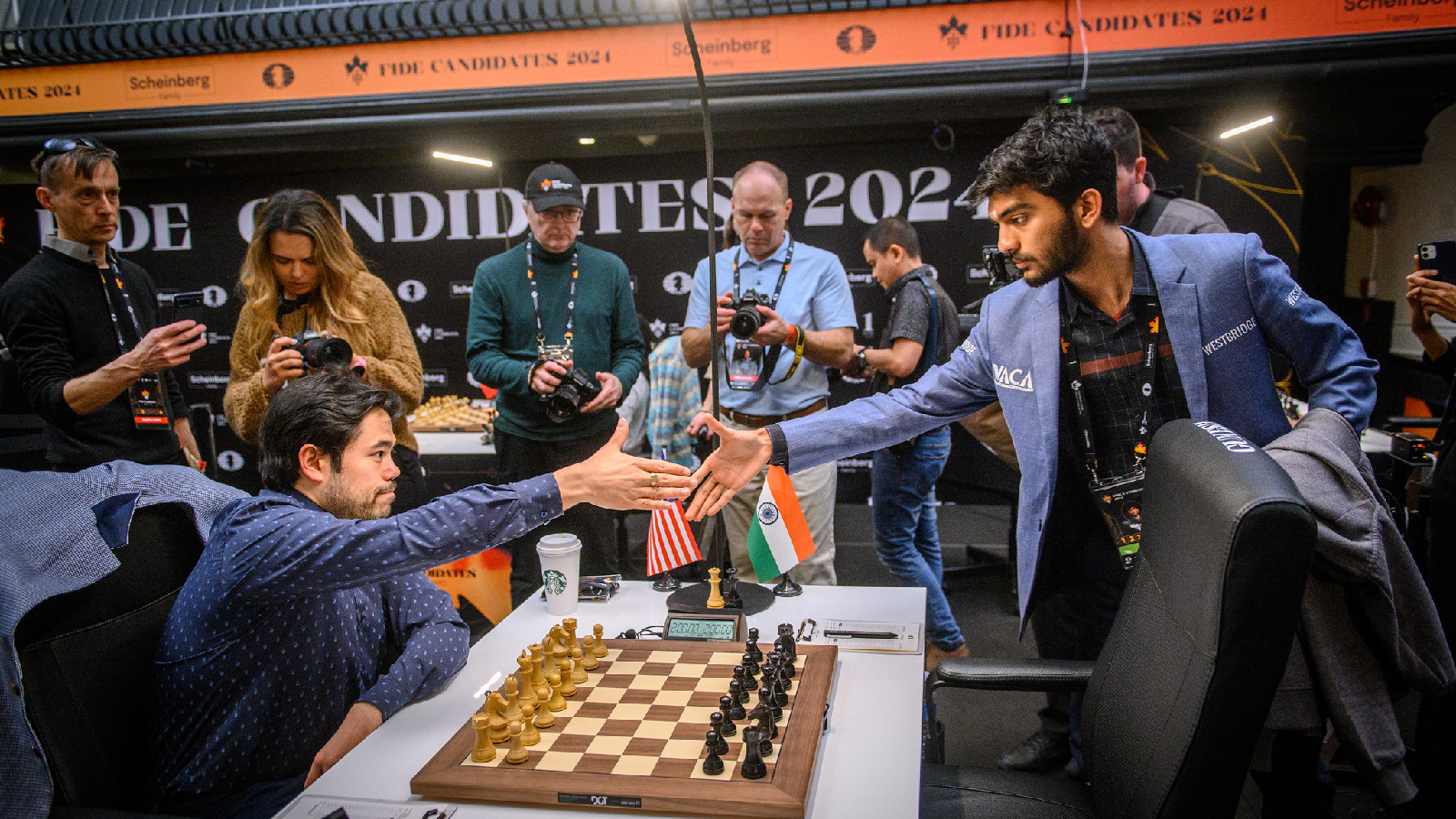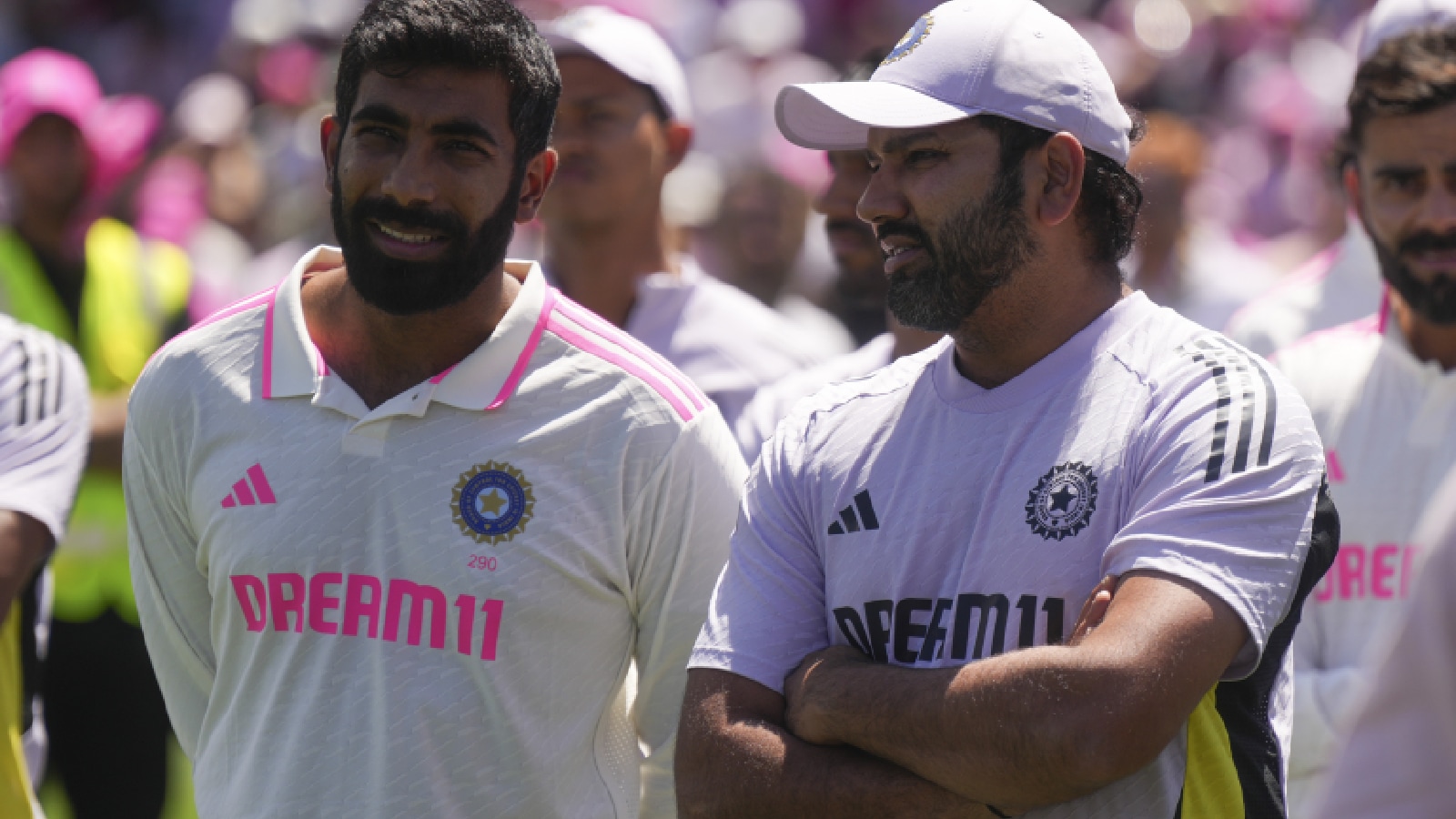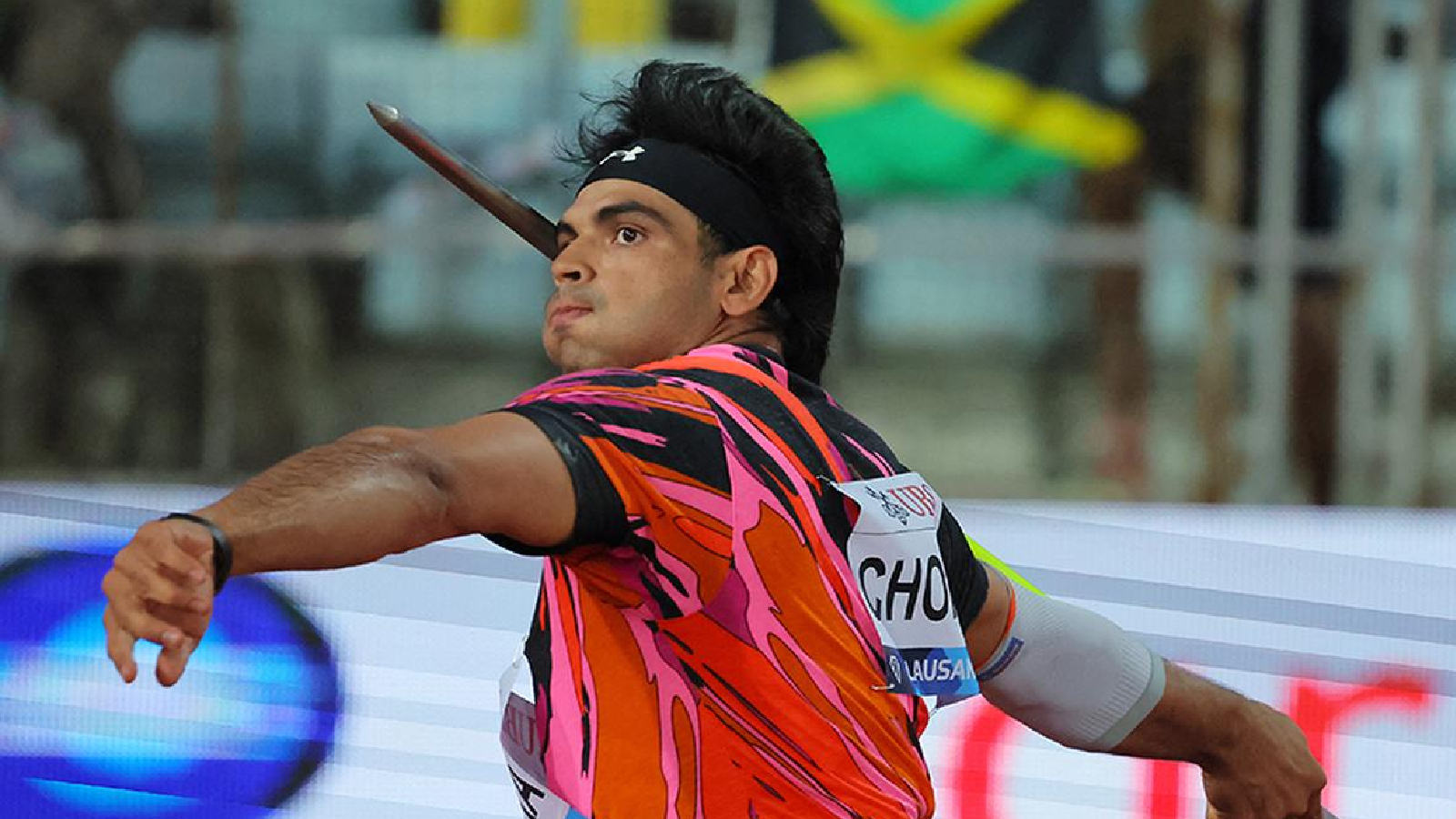If anyone still had any doubts about this, the era of the Indian teenage prodigy is here.
D Gukesh, the 17-year-old from Chennai who was the second youngest player ever to compete at the prestigious Candidates tournament, has become the youngest ever winner of the event (which will also make him the youngest ever to compete at the World Chess Championship) after his draw against Hikaru Nakamura in the final round of the Candidates chess tournament. While only the draw would have just sent him to the tiebreaks, luck smiled on Gukesh as there was a last-minute draw in the game between Ian Nepomniachtchi and Fabiano Caruana, which propelled Gukesh to the title.
In his fledgling career, 17-year-old Gukesh has constantly wooed history. He became India’s youngest grandmaster ever at the age of 12 years, seven months, 17 days, missing the tag of the world’s youngest by a mere 17 days. He overhauled the five-time world champion Viswanathan Anand as the country’s top ranked player for the first time after 36 years last year. Now, he has added another feat to that impressive list.
In an age of teenage prodigies emerging almost on a monthly basis from India, Gukesh’s upbringing in the sport was slightly different than that of most others. He was deliberately kept off chess engines till he had crossed a rating of 2500 in his career. It was a risky move in an era where engines have fundamentally altered the way players prepare for games.
“I’m guessing that Gukesh is in a minority with that approach. It is a very healthy approach. What was key is that he didn’t use engines himself but nonetheless benefitted through his trainer. That’s how it should be. A player should focus on the playing skills and the trainer can give them the best information (after using engines),” Viswanathan Anand told The Indian Express after Gukesh had surged into the lead in the open section after the 13th round.


Vishnu Prasanna, the man behind the radical idea for Gukesh not to use engines early on in his career, admitted that it was a risky decision.
“Our aim was to be very precise with calculations and to develop intuition and assessment skills for chess. When you’re playing the game you’re always not completely certain. But if you’re always checking with a computer it gives you a clear definition (of whether a move is good or bad). To keep that confused mindset away we adopted that method. It was an experiment. We didn’t know how it would work out. I just thought it would be a useful experiment and since he never stagnated, we continued with it,” Vishnu told The Indian Express before Round 14.
“We didn’t have any trouble. He was very close to becoming the youngest grandmaster in the world. It’s hard to say that working with engines would have improved our chances or not (to get that record which Gukesh missed by 17 days). We thought he was playing well. Getting so close to that record is fair evidence that he was doing well,” he added.
Gukesh’s obsession to be No 1
Besides that, what are the aspects that make Gukesh so good?
“He had a high level of desire even from those days. He would think about nothing else. Just focussed on one goal. It’s a certain obsession. Of all the kids I have worked with, nobody has shown what he has shown: an obsession about the game and to be No 1,” said Vishnu.
Gukesh started to work with Vishnu in 2017, when he was barely 11 years old. But even in those early days, they spoke of him becoming the World No 1 and the World Champion.
“Very early on we’d talk about becoming World Champion and World No 1. He might have been 10 and a half years old or 11. He was really good! We used to think about those scenarios like playing at the top level. I used to initiate these conversations because his ambitions, even at that age, were obvious to me,” he said.
Vishnu said that what also contributed to Gukesh getting to where he is today, is the willingness to do the “unpleasant things”.
“He’d never shy away from things like going to the gym, waking up early. I don’t think he enjoyed those things. He had a lot of clarity about his priorities. This is why he sidelined formats like blitz and rapid and focussed on classical chess, mostly in over the board events. He didn’t play online tournaments a whole lot. These are unpleasant things that a young player won’t enjoy,” pointed out Vishnu. “If there was anything required for him to play better chess, he would do it. That’s what his obsession with success in chess is.”
I’m Manas Ranjan Sahoo: Founder of “Webtirety Software”. I’m a Full-time Software Professional and an aspiring entrepreneur, dedicated to growing this platform as large as possible. I love to Write Blogs on Software, Mobile applications, Web Technology, eCommerce, SEO, and about My experience with Life.





